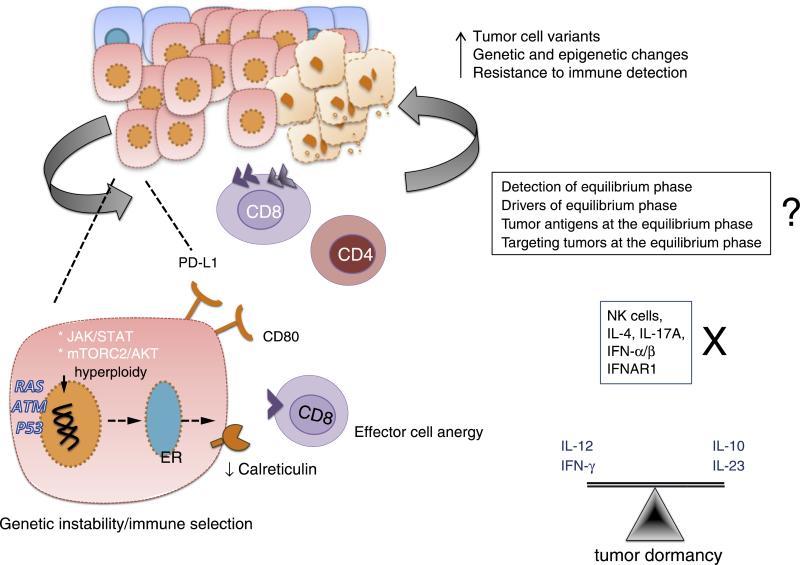Figure 3.
In the Equilibrium phase of cancer immunoediting, the immune system holds the tumor in a state of functional dormancy. Some tumor cells undergo genetic and epigenetic changes and due to constant immune pressure, tumor cell variants evolve that resist immune recognition (antigen loss or defects in antigen-presentation) and induce immunosuppression (PDL1). The Equilibrium phase is a balance between anti-tumor (IL-12, IFN-γ) and tumor promoting cytokines (IL-10, IL-23). The adaptive immune system is required to maintain tumor in a functionally dormant state while NK cells and cytokines such as IL-4, IL-17A and IFN-α/β are dispensable.

